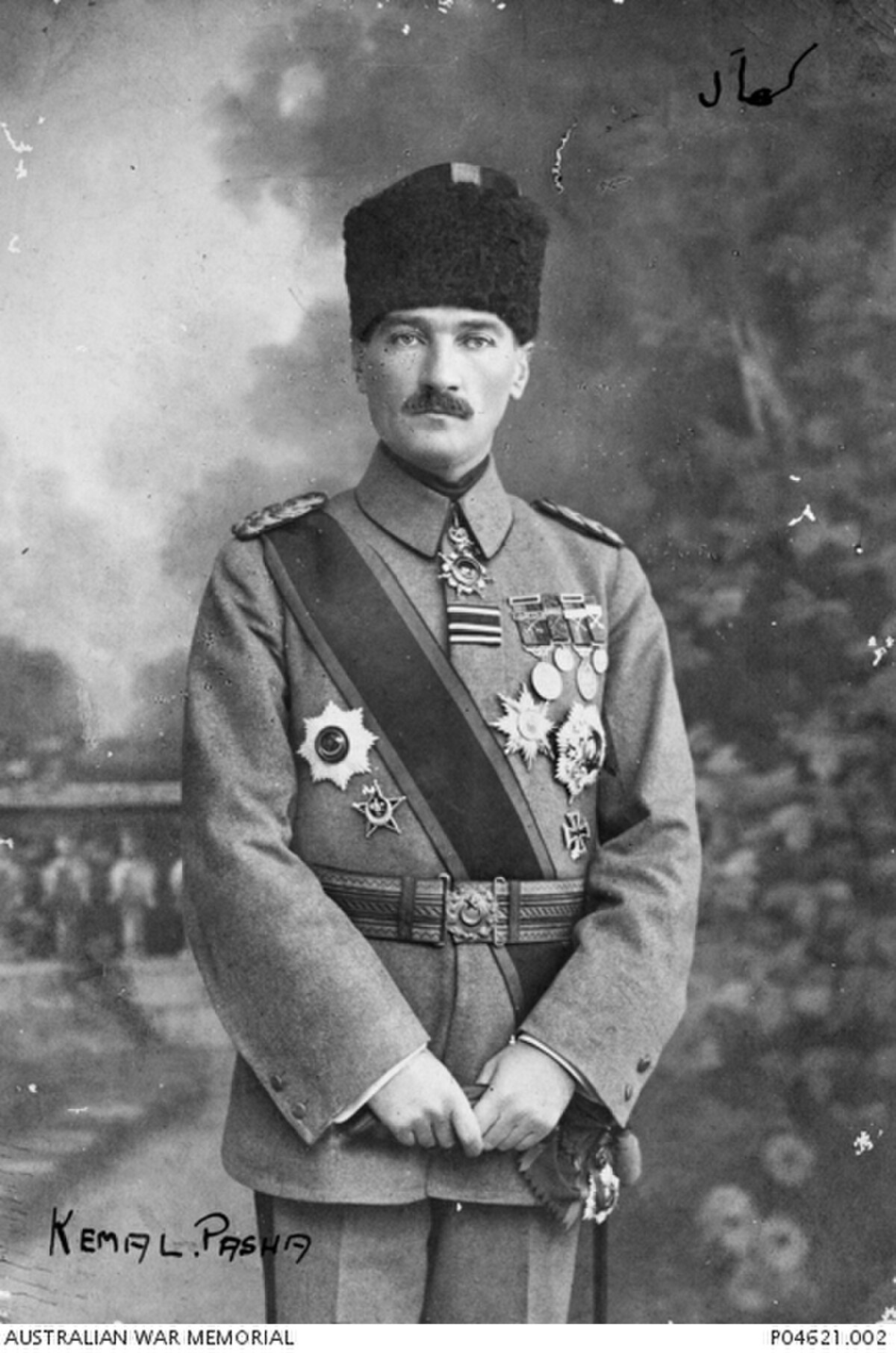
Mustafa Kemal
İstanbul, TürkiyeWith Anatolia in practical anarchy and the Ottoman army being questionably loyal in reaction to Allied land seizures Mehmed VI established the military inspectorate system to reestablish authority over the remaining empire. Encouraged by Karabekir and Edmund Allenby, he assigned Mustafa Kemal Pasha (Atatürk) as the inspector of the Ninth Army Troops Inspectorate –based in Erzurum– to restore order to Ottoman military units and to improve internal security on 30 April 1919. Mustafa Kemal was a well known, well respected, and well connected army commander, with much prestige coming from his status as the "Hero of Anafartalar"—for his role in the Gallipoli Campaign—and his title of "Honorary Aide-de-camp to His Majesty Sultan" gained in the last months of World War I. He was a nationalist and a fierce critic of the government's accommodating policy to the Entente powers. Even though he was a member of the CUP, he frequently clashed with the Central Committee during war and was therefore sidelined to the periphery of power, meaning he was the most legitimate nationalist for Mehmed VI to placate. In this new political climate, he sought to capitalize on his war exploits to attain a better job, indeed several times he unsuccessfully lobbied for his inclusion in cabinet as War Minister. His new assignment gave him effective plenipotentiary powers over all of Anatolia which was meant to accommodate him and other nationalists to keep them loyal to the government.
Mustafa Kemal had earlier declined to become the leader of the Sixth Army headquartered in Nusaybin. But according to Patrick Balfour, through manipulation and the help of friends and sympathizers, he became the inspector of virtually all of the Ottoman forces in Anatolia, tasked with overseeing the disbanding process of remaining Ottoman forces. Kemal had an abundance of connections and personal friends concentrated in the post-armistice Ottoman War Ministry, a powerful tool that would help him accomplish his secret goal: to lead a nationalist movement against the Allied powers and a collaborative Ottoman government.
The day before his departure to Samsun on the remote Black Sea coast, Kemal had one last audience with Mehmed VI. He pledged his loyalty to the sultan-caliph and they were also informed of the occupation of Smyrna (İzmir) by the Greeks. He and his carefully selected staff left Constantinople aboard the old steamer SS Bandırma on the evening of 16 May 1919.
